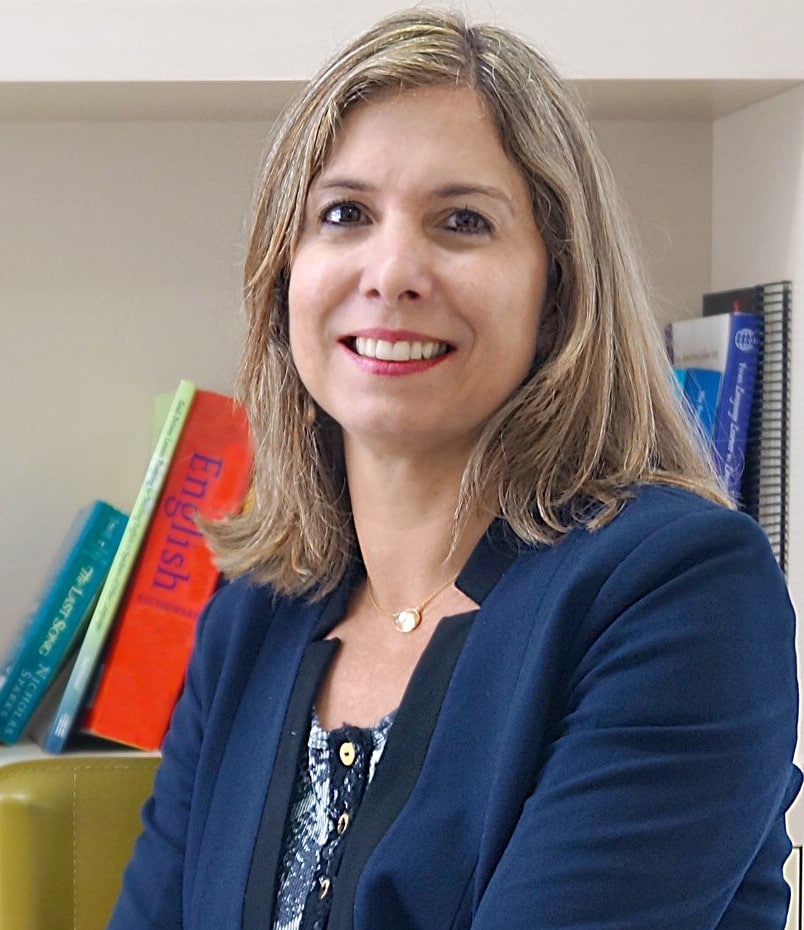Being a NNEST in Brazil Today Part 2
“Language doesn’t only represent or refer to social reality (…) it constructs social reality”
Claire Kramsch, in “From Practice to Theory and Back Again.”
Now I look around and I realize how things have changed. I find myself speaking Portuguese in a teachers’ room with teachers just like me: all Brazilian-born. I have attended conferences and webinars about native speakerism and the NNESTs vs. NESTs issues; I have become acquainted with teachers committed to the issues surrounding the stigmatization of NNESTs, especially in Europe. I’m also a mentor and I’m responsible for the staff’s’ continuous professional development. I have been doing this for about five years now and I notice that in my context teaching skills are more relevant than linguistic knowledge, or even cultural knowledge. To some teachers, language competence is a big enraged elephant silently standing in the backroom of our teaching; to others, it is just a pet-peeve. No matter how we look at it, it is there, and teachers do not talk about it.
Although we occasionally run workshops about language development, we do not touch much on this — mainly due to the fact that many of us are working around the clock to make ends meet, and so we choose to focus on more urgent issues that involve teaching skills, classroom management, and grading students’ assignments. In fact, good teaching and interpersonal skills matter much more when a teacher has struggling students or behavior problems. In fact, Marek Kiczkowiak (2015, p. 9) says that “exploring this (teaching skills) during TD is crucial as it can help us move the focus away from L1 as the most important and sought-after ELT ‘qualification’ to a discussion “about critical competencies of effective teachers and effective teaching regardless of that teacher’s background.”(qtd. in Farrell, 2015, p. 3).
That said, it is arguable whether all teachers need the same level of language competence. In some contexts, being fluent means to be able to order food from a menu or wait on a table at a restaurant; in other contexts, being fluent means to participate in business meetings or to be able to understand instructions from a manual. Last year I met a teacher from a Western African country who taught one hundred students in a class. What kind of fluency is expected from these students? It is clear that fluency can have many shades just like any other concept involving human interactions and needs.
Most of the teachers I work with are in two minds about native speakerism. It is unrealistic goals, such as speaking like a native speaker, that make them regard themselves as inferior to NESTs. Once they see themselves as an essentially lesser group, they don’t believe they can develop as English speakers as well. This also may lead to the belief that they will never move beyond as teachers because they believe they have a fragmented identity if their language skills are not fully there. However, “apart from their desire to improve their linguistic knowledge, NNESTs do not need differentiated training.”(Llurda & Moussu, 2008).This means that as NNESTs we can achieve the same goals as other teachers who speak English as a first language. There are of course questions we should ask ourselves to seek some understanding of how our beliefs impact our our identity as foreign language teachers:
- Is it possible to stay true to myself in a foreign language?
- How do I appropriate for myself someone else’s language?
- Why is it (not) important for me to acquire a native-like competence in the language that I teach?
- How do I feel about my own accent and my mistakes in the language I teach?
- Why do(n’t) these issues matter to me?
What about me? I’m coming to terms with my Brazilian English accent. It is getting harder and harder to speak like an American and to think like an American because I teach like a Brazilian and it is exactly what my students expect me to do. I have been using Portuguese as a reference in my classes for quite a while now because I acknowledge the fact that it is the language that we all speak and it is our cultural foundation and it is a crucial component of our identity as speakers and as a social group. Allowing both languages to co-exist in our classes can be beneficial for our students and for us, too if we want to create a sustainable teaching and learning environment that embraces cultural and linguistic diversity.
Suggested reading:
Crystal, D. (December 7, 2013) World Englishes. Retrieved from https://www.youtube.com/watch?v=2_q9b9YqGRY
Kiczkowiak, M. (2015) A NNEST Perspective on TD: A Complicity of Silence? IATEFL Teacher Development SIG Newsletter. Volume 73. p. 9
Kramsch, C. J. (1993). From Practice to Theory and Back Again. Context and culture in language teaching. Oxford, Oxford University Press. pp. 4-17
Llurda, E, & Moussu, L. (2008) Non-Native English-speaking Language Teachers: History and Research. Language Teaching. Volume 43 (3) pp. 315-348
Machin, D. & Abousnnouga, G. (2008) Defense Discourse I: The Visual Institutionalization of Discourse in War Monuments, in Mayr, A. Johnson, S. (Ed) Language and Power: An Introduction to Institutional Discourse. London, NX: Continuum International Publishing Group
Rajagopalan, R. (1999) Of ELF Teachers, Conscience, and Cowardice. ELT Journal, Volume 53 Number 3 pp. 200-06





